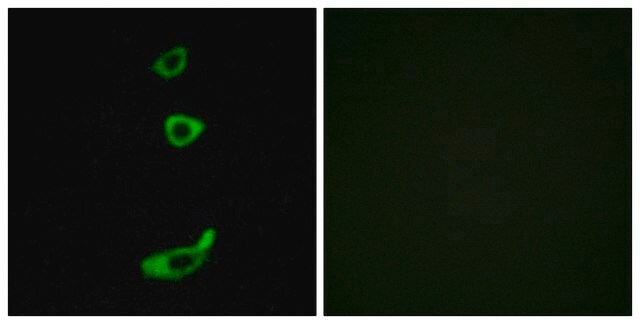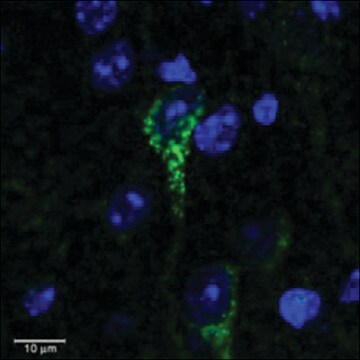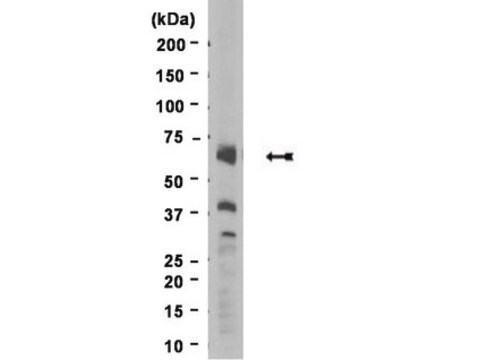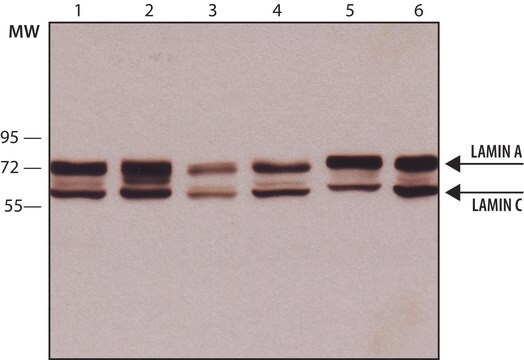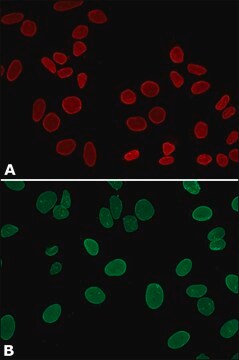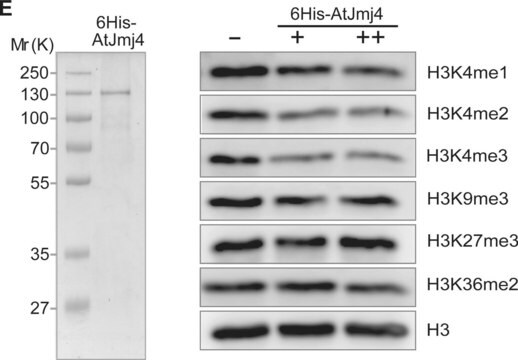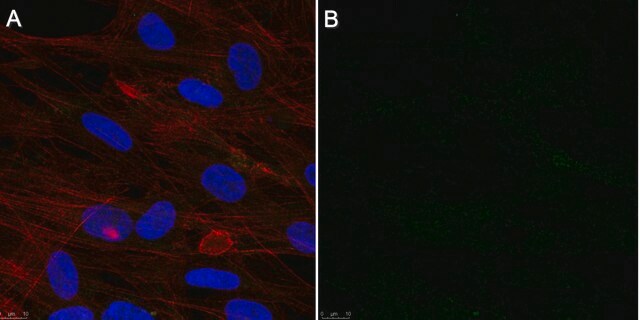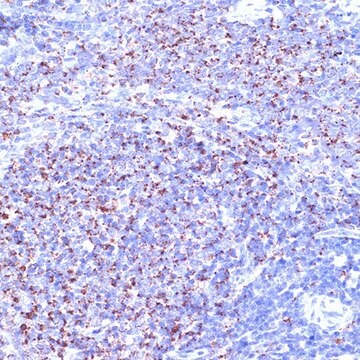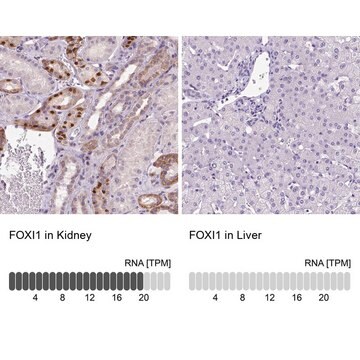SAB4200272
Anti-Progerin antibody, Mouse monoclonal
clone 13A4, purified from hybridoma cell culture
Sinónimos:
Anti-CDCD1, Anti-CDDC, Anti-CMD1A, Anti-CMT2B1, Anti-EMD2, Anti-FPL, Anti-FPLD, Anti-HGPS, Anti-IDC, Anti-LDP1, Anti-LFP, Anti-LMN1, Anti-LMNA, Anti-LMNC, Anti-LMNL1, Anti-Lamin A/C, Anti-PRO1, Anti-Renal carcinoma antigen NY-REN-32
About This Item
IP
WB
indirect immunofluorescence: suitable
western blot: 2.5-5.0 μg/mL using whole extracts of HeLa cells overexpressing human progerin.
Productos recomendados
biological source
mouse
conjugate
unconjugated
antibody form
purified from hybridoma cell culture
antibody product type
primary antibodies
clone
13A4, monoclonal
form
buffered aqueous solution
mol wt
antigen ~70 kDa
species reactivity
human
concentration
~1.0 mg/mL
technique(s)
immunoprecipitation (IP): suitable
indirect immunofluorescence: suitable
western blot: 2.5-5.0 μg/mL using whole extracts of HeLa cells overexpressing human progerin.
isotype
IgG1
UniProt accession no.
shipped in
dry ice
storage temp.
−20°C
target post-translational modification
unmodified
Gene Information
human ... LMNA(4000)
General description
Application
- immunoblotting
- immunoprecipitation
- immunofluorescence
Biochem/physiol Actions
Physical form
Disclaimer
¿No encuentra el producto adecuado?
Pruebe nuestro Herramienta de selección de productos.
Optional
Storage Class
10 - Combustible liquids
flash_point_f
Not applicable
flash_point_c
Not applicable
Elija entre una de las versiones más recientes:
Certificados de análisis (COA)
¿No ve la versión correcta?
Si necesita una versión concreta, puede buscar un certificado específico por el número de lote.
¿Ya tiene este producto?
Encuentre la documentación para los productos que ha comprado recientemente en la Biblioteca de documentos.
Nuestro equipo de científicos tiene experiencia en todas las áreas de investigación: Ciencias de la vida, Ciencia de los materiales, Síntesis química, Cromatografía, Analítica y muchas otras.
Póngase en contacto con el Servicio técnico